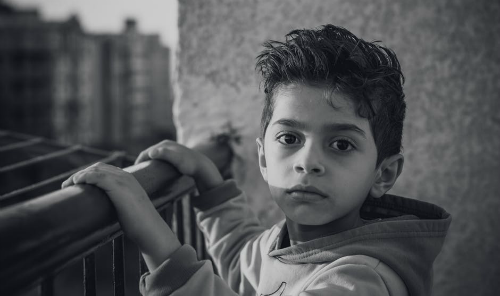|
Traveling with Minors in Bolivia Traveling with minors can be a sticky situation in Bolivia if you haven’t prepared in advance. The laws are very strict and there are certain documents and/or permits that may be required of you when you travel with children. If you are traveling into Bolivia as a tourist, and if Bolivia requires a tourist visa of you, your child or children will also need tourist visas. Whether or not you will need tourist visas will depend on the bilateral agreements Bolivia has signed with your country. If you are moving to Bolivia with your children to seek residency, you must not enter on a tourist visa. ALL citizens of other countries (even if they are from countries for which tourist visas are not required) must enter Bolivia with a specific purpose visa if the purpose is to live and work in Bolivia.
Permits to travel with minorsBolivia is divided into nine departments (like states or provinces) and there are laws not only concerning travel into and out of Bolivia, but also about travel within the country if you plan to cross from one department into another. Adults (parents or guardians) may need travel permits to cross state borders or to enter or exit Bolivia with minors. Travel permissions are not the same thing as travel visas. They are an additional requirement. Firstly, if both parents be traveling with the child no permit is required. Presentation of proof of identity for both parents and the children is sufficient. The following is for cases in which the child is traveling with only one parent or guardian, is traveling alone, is traveling in a chaperoned group, or is traveling with a non-relative adult: The laws that apply are different for foreign children living in Bolivia, children with dual citizenship, and those who are traveling as tourists. Foreign children are subject to two considerations: If the child resides in Bolivia (whether the child is foreign or Bolivian) he/she is subject to Bolivian law and must fulfill the same requirements as nationals. If the child does not reside in Bolivia, and simply entered as a tourist, and remains in the country less than 90 calendar days per year, no travel permit will be required to leave the country. There are additional laws regulating travel with multiple children, or groups of children. For example, one adult may accompany a maximum of two infants and must comply with the regulations established for traveling with minors. Adult chaperones may not accompany groups larger than 10 minors. There must be one chaperone for every 10 minors. ONAMFA travel permits are not normally required of tourists. Your passports and tourist visas are sufficient to demonstrate that you do not live in the country. However, parents and guardians of foreign children who live in Bolivia must adhere to all laws regarding interstate and international permits for travel with minors. For non-tourists, at airports, international border points, and borders between provinces, you may be required to show all documents that prove you own or have rented the vehicle you are driving, and all documents proving you are the parent(s) or guardian(s) of all children in your vehicle, or traveling with you on a bus or train. If you travel with someone else’s children who have been entrusted into your care, there are special permits you will have to obtain prior to traveling, otherwise you could be accused of child abduction. If you fly you will obviously show your documents at the airport, but if you drive or take a bus, be prepared to be stopped at one of the many “trancas” (combination tollbooths/checkpoints) you must cross through at the border of each province. Permits to travel with minors under the age of 18 should be obtained at the local ONAMFA office in any major Bolivian city. For all parents and guardians (tourists and/or residents of Bolivia) this is also important if you are one of the minor’s parents traveling without the other parent. If BOTH parents are not traveling with the minor(s) then you need an authorization signed by the other parent to prove that you have their permission to travel with your children. This applies not only to when you leave Bolivia to another country, but also as you cross from one department into another, if traveling by land. Many foreigners are not aware of this and after hours of driving or riding on a bus or train, they find they are not allowed to cross at the checkpoints and must turn back (or worse, they may be apprehended until the situation is cleared up and the other parent is notified). For minors that live with only one parent, that parent will have to show that the other parent is absent, deceased, or otherwise not at all involved in the child’s life (meaning you truly cannot locate them and/or you have sole custody) and therefore that they are completely unavailable to sign travel authorizations. In this case, you are usually required to get a permit to travel with the minor which will have to be signed by two witnesses who swear you are a single parent. EVERYONE (foreign and Bolivian) who lives in Bolivia with children and plans to exit Bolivia MUST apply for an ONAMFA permit to travel with children if you exit the country. Even if you are a single parent with sole custody, residing in Bolivia with your children, you must process an ONAMFA permit to travel outside the country with a minor. If you are traveling with an adopted child, there are more requirements and legal issues to be aware of, so inform yourself fully about this at the ONAMFA office to avoid having problems while you travel or live in Bolivia. Note: If your child was born in Bolivia and holds dual citizenship and both parents are foreigners, the law will usually apply in equal measure to both parents. BUT if one of the child’s parents is Bolivian, the Bolivian parent can prohibit you from traveling outside the country with your child much more easily. Bolivian law will give them preference in most cases, especially if your child was born in Bolivia or if you are a woman and the Bolivian parent is the father. There have been numerous cases in which foreign women have married Bolivian men and then divorced (after having had children born in Bolivia) and this resulted in the woman being unable to travel abroad or move back to her country of origin with her children because the Bolivian father would not give consent to travel. Consider yourself forewarned that if your child is born in Bolivia and one of the parents is Bolivian (and refuses consent to leave the country), because your child is a Bolivian citizen by birth you may spend months or years attempting to gain authorization to leave the country with your child (and may never be allowed to if they never give consent).
Additional requirements by airlinesAirlines have their own regulations to which you must adhere, in addition to Bolivia's laws. For example, most airlines state that children over 12 years of age may not fly as unaccompanied minors. They will be treated and transported as adult passengers and the parents or tutors are responsible for any travel permits required, as well as risks involved. Children under 5 years of age may not fly as accompanied minors. All children under 5 must be accompanied. This information is published on the website of a major Bolivian airline: According to Bolivian law, all minors traveling must have authorization from their parents or tutors, in addition to carrying a special travel permit which will be required from: * All children under 12 years of age not accompanied who leave their department of residence for any other destination within Bolivia. * All children under 18 years of age who leave the country unaccompanied by their parents or tutors or accompanied by only one parent. * It is important to review and ensure your passport is not expired. Passports are processed at the Immigration offices in the capital cities of each of Bolivia's departments. * Travel visas are issued by the embassies of each country, located in the city of La Paz. Review your visa to ensure it has not expired. * Passengers who, for any reason, are in transit through the United States must have a travel visa from that country. * To avoid problems you should get an international yellow fever shot 10 days prior to your trip. Passengers in transit through Bolivia going to a country that requires a yellow fever shot must carry a certificate proving they've received the yellow fever shot. A Word of CautionNot only do national and international laws about traveling with minors change frequently, individual airline regulations do too. Please consider this information on this page as generally informative but before you travel, be 100% sure to check with your airline or travel agent first!     |

